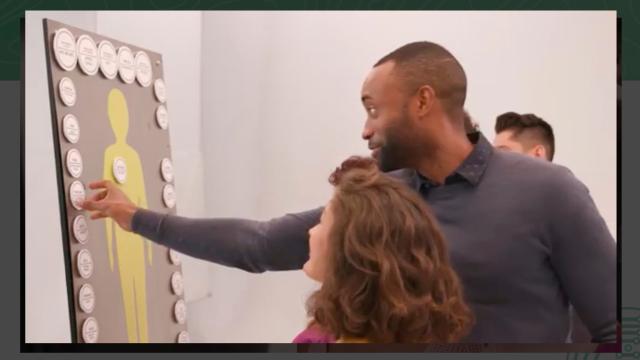The partially U.S. government-funded National Academy of Sciences removed a webpage with a video describing gene editing in ways that conflict with the organisation’s own ethical guidelines.
The NAS has updated the webpage where the video once resided with a note saying, “We are concerned that the content, including a video, left the misimpression that the use of genome editing for the ‘enhancement’ of human traits is permissible or taken lightly.” Gizmodo has not viewed the now-deleted video.
The AP reports that the video included lines like, “I guess I would like to be taller,” “I would like to change body fat,” “let’s prevent baldness,” and “take away dyslexia,” suggesting that this kind of genetic selection for desirable traits might one day leave the realm of science fiction. The video then framed the discussion as a debate over whether or not gene editing should be used to enhance human traits, the AP reports.
A cringeworthy tweet from NAS about the video asked, “Dream of being stronger? ???????? Or smarter? ???? Do you dream of having a top student or a star athlete? Or a child free of inheritable #diseases? ????????⛹????♀️ Can human #GeneEditing eventually make this and more possible? #TheScienceBehindIt”
Scientists and medical ethicists were quick to condemn the video, according to the AP, saying that it misrepresents the capabilities of gene editing techniques and obscures the seriousness of the gene editing debate in a public-facing video. The NAS has since deleted both the tweet and the contents of the original webpage, which now contains this text:
PAGE REMOVED
Note to readers: This page on the topic of human genome editing has been deleted. We are concerned that the content, including a video, left the misimpression that the use of genome editing for the “enhancement” of human traits is permissible or taken lightly. The National Academies of Sciences, Engineering, and Medicine has recommended that non-heritable genome editing should be limited to the treatment or prevention of disease or disability. Like other scientific and medical organisations, we have stated that heritable (germline) genome editing should not proceed at this time. Human genome editing requires much more research and public discussion of the ethics and governance of its potential uses.
You can view an archive of the page, sans video, here.
We’ve previously reported that the National Academy of Sciences’s own guidelines advise against using new gene editing techniques for unnecessary enhancements and suggest to edit the germline — changes that can be inherited by offspring — with lots of oversight and only if there aren’t better treatment options. Basically, the NAS advises that these techniques should be for curing diseases, not for eugenics.
Gene editing has been at the forefront of medical ethics discussions since new techniques like CRISPR/Cas-9 have emerged, which make editing human genetic material cheaper and seemingly as simple as cutting and pasting DNA. Last year, a scientist in China named He Jiankui drew international condemnation after claiming to have gene-edited human embryos, sparking the Chinese Academy of Sciences to write, “[We] believe there is no sound scientific reason to perform this type of gene editing on the human germline, and that the behaviour of He and his team represents a gross violation of both the Chinese regulations and the consensus reached by the international science community.”
And despite its purported promise, new studies continue to question whether these systems come with unintended effects like unwanted mutations that could lead to disease or other suffering.
We have reached out to the National Academy of Sciences for comment and will update this article when we hear back.
